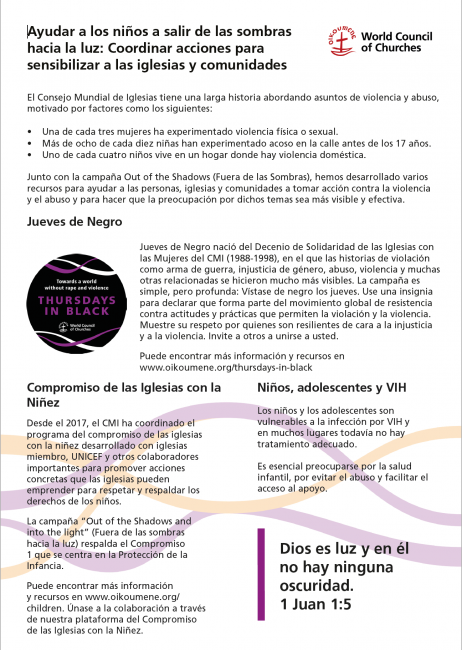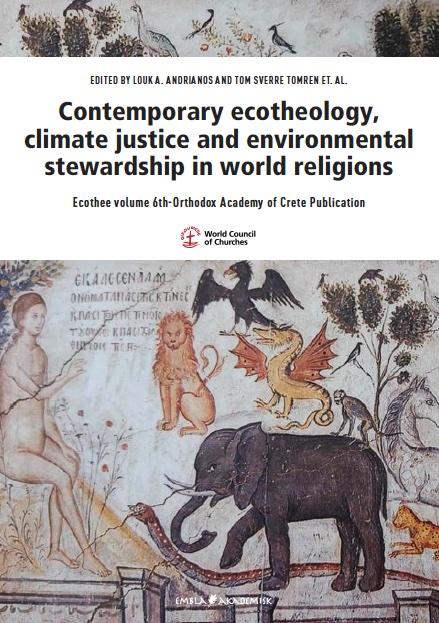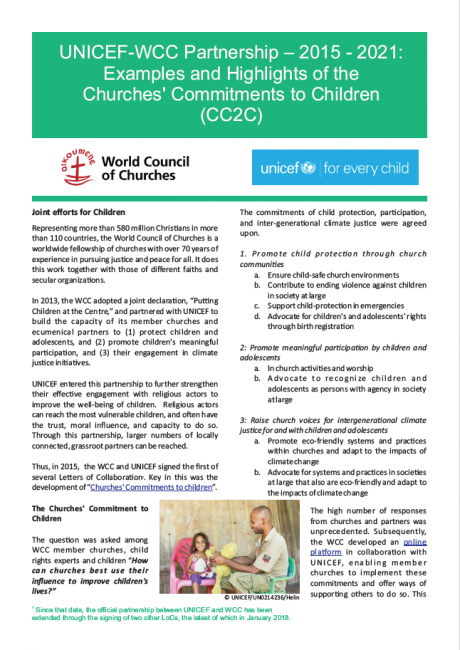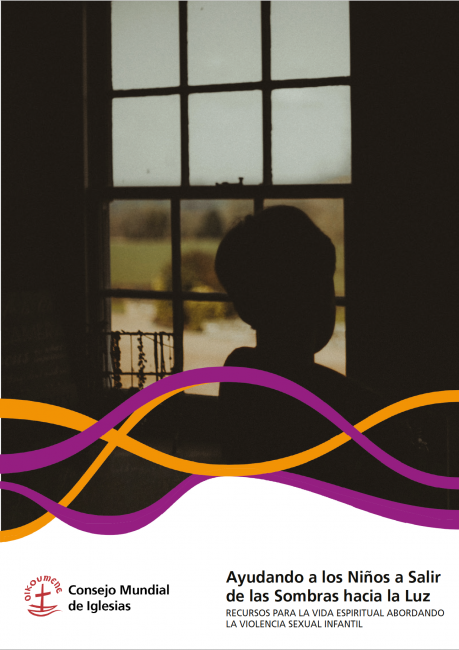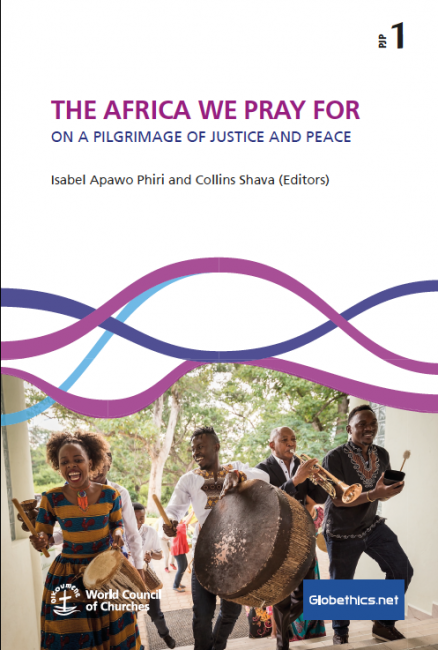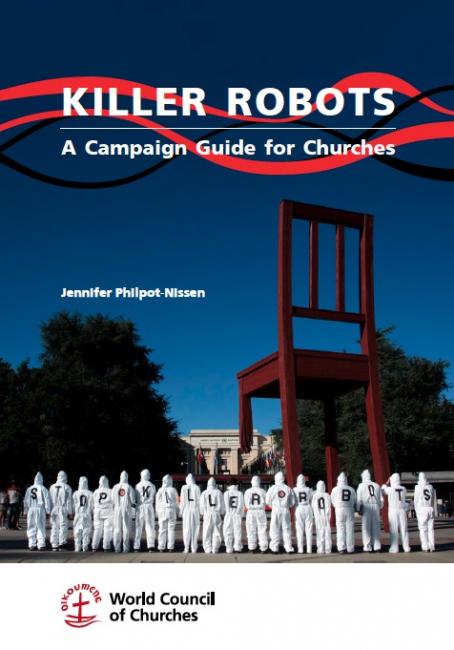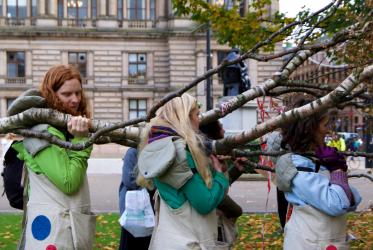Displaying 81 - 100 of 194
Aider les Enfants à Sortir de l’Ombre à la Lumière
Ressources de la Vie Spirituelle Pour Aborder Violences Sexuelles Contre les Enfants
15 February 2022
Les Jeudis en Noir: Aider les Enfants à Sortir de l’Ombre à la Lumière
Conjuguons nos actions pour une prise de conscience dans les Eglises et les communautés.
15 February 2022
Walk the Talk / Dalle parole ai fatti
Tabella di marcia per chiese e comunità per un’economia di vita e per la giustizia ecologica.
02 February 2022
De las palabras a la acción
Conjunto de herramientas para acompañar la «Hoja de ruta para las congregaciones, las comunidades y las iglesias para una economía de vida y una justicia ecológica»
22 December 2021
Contemporary Ecotheology, Climate Justice and Environmental Stewardship in World Religions
Ecothee Volume 6th-Orthodox Academy of Crete Publication
19 December 2021
Aider les Enfants à Sortir de l’Ombre à la Lumière
Ressources De La Vie Spirituelle Pour Aborder Violences Sexuelles Contre Les Enfants
19 December 2021
ZacTax Toolkit
24 November 2021


